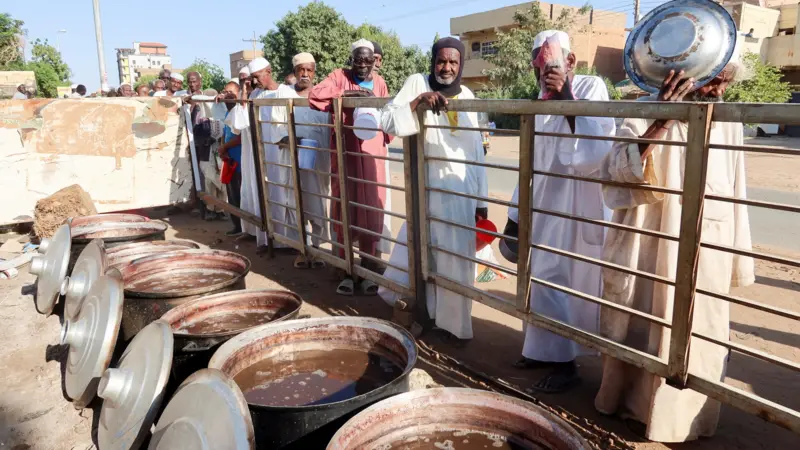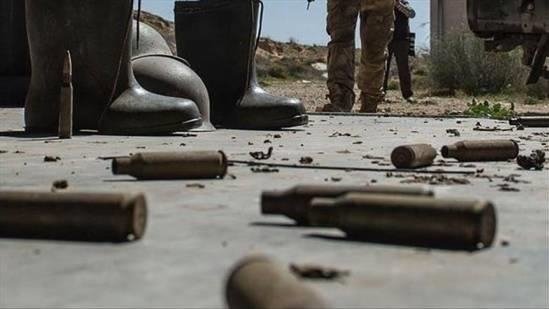As Sudan nears two years of devastating war, religious and political power struggles are fueling the conflict more than ever. The article sheds light on how extremist ideologies, military manipulation, and Brotherhood influence have deepened the crisis while civilian groups push for a democratic, secular future.
Stockholm
Just a few days remain before the ongoing war in Sudan between the army and the Rapid Support Forces (RSF) marks its second year, amid ongoing international efforts to end the conflict. However, all these efforts have so far failed to convince the army to sit at the negotiating table to end the suffering of more than 30 million Sudanese citizens.
Meanwhile, reports indicate that the crisis is being further complicated by the infiltration of the Muslim Brotherhood into the army’s military establishment. The group has exploited the conflict to achieve its goals of regaining power and asserting dominance.
Fueling the Flames of War
Since the outbreak of the war, the Islamic movement has continued to fuel the conflict, convincing army leaders to continue fighting at any cost and to reject negotiations, while imposing impossible preconditions for dialogue.
In this context, the Al-Baraa Ibn Malik brigades affiliated with the Islamic movement and fighting alongside the army have continued to commit violations against civilians. They have previously been accused by the “Emergency Lawyers” group of serious abuses in the Halfiya area in Bahri, north of the capital Khartoum. These included arbitrary arrests and extrajudicial killings of both civilians and military personnel.
The violations were reported to include arbitrary detention, killings outside the legal framework, and actions based on ethnic and regional targeting some incited by hate speech and propaganda. All these acts were justified by accusations of collaboration with the RSF, which had controlled the neighborhood for nearly a year since the war began on April 15. The group has reportedly carried out collective punishment on residents.

Political Motivations Behind the Violence
Sudanese political analyst and writer Salah Shuaib stated:
“The militias supporting the army are not fighting this war out of a genuine belief in what is being called the ‘War of Dignity’. Instead, they are pursuing ideological, tribal, regional, and opportunistic goals. This is why General Burhan found his opportunity as the apparent leader of the army to maneuver toward maintaining power with the support of the Muslim Brotherhood.”
He added:
“Now, a war of words is beginning between the ‘Homeland Shield Forces’ led by Abu Aqla Kikel and the Sudan Liberation Movement led by Minni Arko Minnawi. This conflict is being fueled by partisan media outlets backing one side or the other. Moreover, there are other factions aligned with Islamic, regional, and military interests that continue to support the perpetuation of the war.”
Erratic Political Decisions
Amid this chaos, the head of the Sudanese army continues to drive the country into a dark tunnel, facing both domestic and international rejection of his policies, which have devastated the population and caused thousands of deaths. Over 30 million people have been affected.
To deflect attention from domestic and international scrutiny, the army commander has made provocative accusations against neighboring countries, dragging Sudan into tensions with Chad and South Sudan. He has unilaterally suspended Sudan’s membership in the Intergovernmental Authority on Development (IGAD) and caused diplomatic tensions with Kenya, Uganda, and the Central African Republic.
Political Initiatives and Civil Aspirations
In the face of growing domestic and international rejection of the military’s conduct which is now widely described as ethnically motivated civilian forces allied with the RSF have announced a founding charter for Sudan. The document promises a new vision for the country free from religious dominance.
The charter emphasizes:
- Protection of freedoms and human rights in accordance with international conventions.
- Safeguarding freedom of association, civil society, peaceful assembly, and expression.
- Inclusive political participation for all citizens.
- Judicial independence, national commissions, and women’s empowerment to ensure full representation across all state institutions.

A Civil, Secular State
The charter calls for the establishment of a secular, democratic, decentralized state that recognizes the country’s diversity. It prohibits the formation of political parties based on religion or ethnicity.
Amid the army’s loss of its professional identity due to deep Brotherhood infiltration, the charter proposes the creation of a new professional and national army with a revised military doctrine, under civilian oversight, alongside a professional police force to safeguard Sudan’s internal and external security.
Observers believe that this and similar initiatives could be the light at the end of the tunnel, especially as they gain support from political parties and civil society groups that see no solution for Sudan except through a civilian state that represents everyone and ensures equality under the rule of law.
However, these initiatives which have been increasingly endorsed by the RSF leader—continue to clash with the rigid stance of radical groups and the army’s leadership, who persist in rejecting any peaceful resolution to the conflict.

